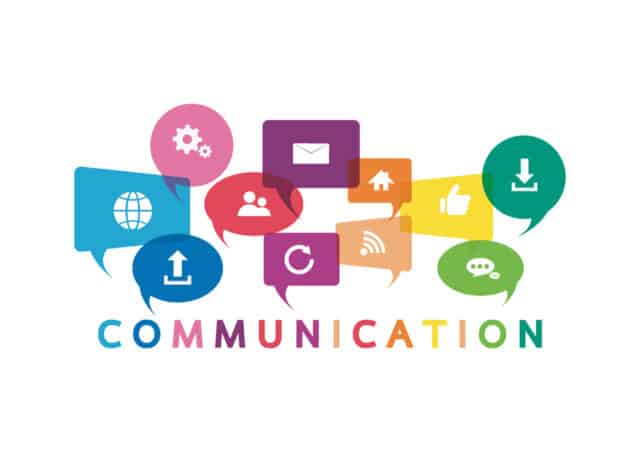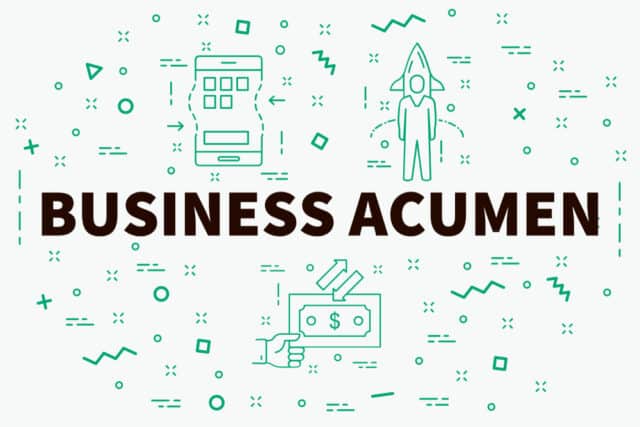Do you possess perfect selling skills? Tips to Master Sales Soft skills
Sales professionals learn selling skills that give them a competitive edge in an increasingly commoditized market. Sales skills are the “muscles” that make sales professionals strong and fit. Their skills have been developed through classroom instruction, coaching sales, objection handling, and on-the-job training. The career of a sales rep is not complete without fine-tuning.

Simply put, the top sales team consistently delivers for their clients. It’s not just one or two sales professionals’ efforts; it’s the whole team.
The elite sales teams work tirelessly to improve their sales skills. The team leader sets the bar for excellence and encourages continuous learning. It’s not always easy for every sales rep. Sales leaders should coach sales reps and foster these people regularly; however, many lack the experience or time. They should be given extensive product knowledge, taught objection handling, and close deals. There must be no excuses.
Why is Sales Skills Training Important?
Your salespeople need to improve their sales efforts and selling skills in today’s highly competitive environment. Selling skills training can help you transform your bottom line. Your company’s culture can be changed, and you can create passionate, productive, and creative employees.
The significance of sales training can hardly be compromised. If you want to succeed in business, you must develop the skills needed to successfully sell your products and services. In fact, if you don’t know how to sell, you may not be able to survive in business.
What are the most essential selling skills of salespeople?
It’s not just about closing methods in professional sales; it’s also about having a deeper grasp of the customer’s wants. It’s the ability to distinguish between a painful and a helpful change.
To succeed, salespeople must have more than solid persuasion and closing skills. Sales skills are critical to any business. They include everything from being able to communicate effectively to selling your product or service and negotiation skills.
How to Analyze the Skills of Your Sales Team and Sales Reps?

Your organization’s lifeblood is your sales team. Selling skills include sales skills, sales management skills, and soft skills for the sales team. These abilities vary depending on the size and industry of the company. The skills every sales rep requires also differ from product to service.
Some sales reps are natural extroverts who enjoy meeting new people and making new contacts. Other sales professionals focus on one customer at a time and build relationships through face-to-face meetings. Still, others thrive on cold calling and networking.
How to Improve Sales Process and Performance?
No matter how challenging your sales process is, you can enhance it. Sales are about active listening, understanding, teaching, and talking. Sales are the ability to convince someone to accept your request even if they aren’t sure or don’t believe you.
Sales myths and stereotypes are often distorted in our minds. They have nothing to do with the real world. Listening is the most crucial of these sales skills.
Active listening is the skill of paying enough attention to what the customer is saying without interrupting them. Mirroring involves repeating back what they say, and Paraphrasing involves summarizing what they said. And reflecting, which involves asking questions to understand what they mean.
A good salesperson would try to build rapport with the current customers and focus on future prospects. Relationship building is significant to get more deals and valuable information on prospects.
Selling Skills Training for Your Sales People

Your sales professionals need to improve their selling skills in today’s highly competitive selling environment. Selling isn’t a science that can be followed to the letter. It’s a form of art. It requires dedicated, intelligent people to master it. The significance of sales abilities cannot be understated. It is, without a doubt, the most vital part of every business. If you don’t have sales professionals who know how to sell, then you will not achieve success.
Training on Sales Skills to Increase Accounts
The importance of sales skills cannot be overemphasized. They’re one of the most crucial aspects of growing your business. The quickest and most successful strategy to improve your sales effectiveness is to receive direct training from industry professionals.
The Soft Sales Skills you Need to Teach your Team
You will sell to someone no matter what business you own. Selling is all about relationships. Soft selling skills will allow you to manage your sales team and make them more successful. Below given are several essential elements of sales skills that will aid in the selling process.
Communication

Communicating with buyers is key to all sales. It helps you educate and inform them about their needs. Communication can also be viewed as a process of creating 4Ds: deadlines, deliverables, deliverables on time, and at a decent price.
In business, knowing how to communicate effectively and clearly is crucial. When making sales call, this can be useful. This includes being able to explain complex topics in simple terms and being able to listen carefully to understand what others are saying.
Being able to ask questions to clarify ideas and gain understanding is also essential. Hence, an effective salesperson needs to communicate properly.
Persuasion
What is the definition of persuasion?
The act of persuading people to think or act in a particular way is known as persuasion. Persuasion is a skill that takes a long time to master, and the best salespeople possess it. It requires a lot of hard work and training to achieve substantial outcomes. It is, nonetheless, among the most desirable skills in any field.
When trying to market a sophisticated or expensive product or service in a business context, persuasion plays an enormous role. It aids in persuading somebody to take action.
Active listening
Listening skills are essential to selling because they enable you to understand what your potential customer wants and needs. It’s easy to get caught up in your own thoughts and ideas and miss out on what your customers want. By actively listening to them, you’ll be able to better understand their needs and provide solutions that will meet those needs.
Decisiveness
Decisiveness is essential in the sales cycle. It’s critical to effectively make quick and precise decisions while remaining confident. You’ll stand out among your coworkers because of your ability to make swift decisions. You will be able to make decisions quickly and keep them that way.
It’s important to know what you want to achieve and then choose the best way to reach it. This will help you enhance your sales efforts, get more done, and will impress others.
Empathy
Empathy is a soft sales skill that is seemingly lost art in the sales cycle today. Empathy is the capacity to comprehend another’s pain points and emotions. Whether we like it or not, empathy is essential for our success in the sales profession. It’s how we show that we care, and it allows us to build relationships and connect with new prospects.
The ability to understand another person’s pain points and points of view, and feelings are critical to being successful at sales. Salespeople who can empathize with customers will better connect with them and build trust.
Emotional Intelligence
The emotional quotient is another name for emotional intelligence. It assesses a person’s capacity to recognize and articulate emotions, as well as manage interpersonal interactions. Research has shown that sales professionals’ skills have a direct impact on the success of their product or service.
Emotionally intelligent salespeople can manage all aspects of the sales process efficiently and effectively. EI has three components: self-awareness, self-management, and social awareness.
Curiosity
Curiosity is one of the skills every sales professional should possess. It’s an essential soft skill to master and one of the primary tenets of any effective sales strategy. Curious sales professionals ask more questions, listen closely and ask follow-up questions when they are confused. They are great tools for persuasion.
The ability to ask intelligent questions is essential to any career. It allows you to walk in someone else’s shoes for a short period of time. It enables you to observe things from several angles and obtain new insights into issues.
Resilience
Resilience refers to the ability to quickly recover from difficult situations and setbacks. Other words that describe resilience include perseverance, hardy, and stubbornness.
It’s about being resilient to any challenges you face. It is also about developing strategies and responding to them. This skill has many benefits; however, it takes time to build resilience skills. It’s essential to build resilience because it helps us deal with life’s inevitable challenges.
Time Management

“Time is money” is a common expression. It is critical for salespeople to have good time management abilities. Your most valuable resource is time. Salespeople who are successful understand the importance of managing their time and how it impacts their bottom line.
If you want to do something in life, you should be capable of managing your time. It’s essential to understand what tasks will take priority over others, so you can plan accordingly.
Adaptability
In any aspect of your life, you can adjust to unexpected or changing conditions. It allows you to have a positive outlook and not a negative one. Adapting helps you stay calm, relaxed, and collected in stressful situations. It will enable you to overcome the obstacles more effectively and efficiently without panicking. Adapting is a life skill that may be used in any situation. It has the ability to raise your efficiency and productivity while also improving your job quality.
Among the most important talents you can learn in business is adaptability. It enables you to react rapidly to shifting market conditions. It helps you build strong relationships with customers and colleagues, ensuring customer success.
Discovery
Selling is all about discovery. It can help you avoid making a wrong first impression or pitching prospects about purchasing something they aren’t interested in. Your success is dependent on the discovery stage. This stage will allow you to identify objections and clarify your goals, and ultimately, it will give you the chance to sell your product. The discovery phase is where you start building relationships with potential clients. It’s essential to build trust and rapport with your audience so they feel comfortable enough to share their needs with you. This is why it’s vital to listen carefully and respond appropriately.
Business Acumen

The capacity to think in business terms is known as business acumen. Business acumen is the ability to manage business day-to-day. This combination of abilities will help you to deal with a wide range of situations that might happen. It helps to understand what makes businesses tick if you want to manage a successful firm. This will assist you in comprehending why some businesses succeed and many others fail. It will also teach you to identify opportunities and risks in new markets.
Social Selling
Social selling is the use of social media to market and publicize your services and products. It’s one of the most effective ways to reach people who aren’t looking for sales messages but are still interested in what you offer. The goal is to build trust with leads, share valuable and educational information, and show thought leadership within your industry. Social selling can increase your productivity and reduce the time it takes you to close a sale.
Presentation Skills

In order to succeed in any profession, you must be able to deliver information simply and effectively. If you want to succeed at sales, it’s essential to develop presentation skills. You will be able to express complicated ideas in simpler terms if you have a powerful presentation. It will enable you to persuade others to take action. And it will give you confidence when presenting yourself to new people.
Judgment
Judgment refers to the ability of a human being to make objective decisions. This is a sales or commercial ability that enable you to process the information fast and make sound conclusions. Judgment is the most critical skill in sales. Salespeople must be smart enough to make well-informed decisions based on the data or information available to them.
The ability to judge whether something will work out well or not is essential for any business. If you don’t know what products people want, it’s hard to find success. And you won’t be capable of improving your product if you don’t understand what people think about it. Failed sales calls are often caused by poor decision-making. In everyday business situations, with customers, clients, or coworkers, judgment is often used.
Sales Closing Techniques
All of that time is spent doing the groundwork, analyzing prospects, creating connections, and learning a prospect’s specific requirements culminates in one thing: the close.
The aim is to complete a deal, and if you’re good at it, you’ll do well. We know as sales headhunters that closing is, sadly, the most challenging part of the sales process. Even if it’s just a small order, getting individuals to commit is difficult.
Do all good salespeople know how to seal a deal?
Closing a deal involves a significant amount of effort. You should be ready for a variety of situations, including opposition and objections.
Conducting research is crucial. Salespeople must understand everything they can about their customers, their businesses, their goals, challenges, hobbies, and present solutions. Performing your research will aid you in discovering outstanding options and assessing elements that could prevent or delay closing.
Always make an effort to close
Sales recruiters and reps who are at the top of their game are continually closing deals. Their closure technique has been refined and perfected over many years. They urge prospects to take on minor promises or mini-closes as they get closer to a major closure.
Leading to a close is a process for good salespeople, and it entails getting a succession of commitments as you progress through the sales process. You’re further identifying prospects and advancing them through the sales funnel at each step. However, once you’ve reached the final close, you might use a plethora of closing tactics.
The Top Four Sales Closing Strategies
The type of closing you select should depend on what you observe about the prospect and what you think they’ll be open to. It’s critical to choose your words carefully. Using the correct power words in your closing method can make a significant difference in a deal’s outcome. Here are four highly efficient sales closing strategies used by salespeople:
1. The presumptive conclusion
This strategy entails utilizing a term or wording that assumes the deal is done. “What day do you wish to receive your shipment?” you can ask towards the end.
2. The closing option
Instead of asking for a prospect’s business directly, you inquire which ideal solution they desire, comparable to the assumptive close. “Do you want your package delivered on Thursday or Saturday?” you can ask at your end.
3. Suggestion Close
If you have a great relationship with the prospect and they see you as a respected professional, a suggestion close is a terrific tactic. “Based on what you’ve told me about your operations, I’d recommend you receive orders on Saturdays,” you could conclude. “Does this make sense to you?”
4. Bring the urgency to a close
Generating a sense of urgency puts pressure on the prospect to make a decision, especially if you know the customer needs to decide immediately and is on a tight deadline.
As an, e.g., consider the “limited-time offer.” Unlike the other closing tactics, however, this should only be utilized on rare occasions and by skilled sales agents with a solid client relationship.
Hard-Selling vs. Soft-Selling Techniques
The fundamental difference between hard and soft selling is based solely on a single factor: time. A hard sell is an effort to convince a buyer to act right away. A soft sell, on the other hand, is a progressive approach.
When a salesperson uses soft selling, he or she is taking their time. They are gaining knowledge about the consumer, their requirements, worries, and value perceptions. These elements are rarely considered hard selling.
As a matter of fact, hard selling is frequently transactional in nature, with forceful activity targeted at persuading the buyer to buy. This sales strategy is rarely effective.
Given the dramatic differences between these two approaches, it is evident that soft selling is much more productive. So, why is it so necessary to distinguish between hard and soft selling abilities?
The reason for this is that salespeople need to be familiar with both so that they can avoid mistakenly resorting to a hard sell strategy that could jeopardize a sale.
Here, we compare and contrast these two sales strategies, highlighting the contrasts and demonstrating why soft selling is a more critical tactic.
Hard Selling Skills
The emphasis of hard-selling abilities is on making the sale quickly. It is possible to make a hard sale in minutes. As a result, only those skills that the salesperson believes would meet the customer’s most recent stated need contribute to the hard sale. When a salesperson strives for volume rather than value, hard-selling abilities are frequently displayed. That is, the salesperson is attempting to quickly obtain a promise from the buyer in order to progress on to the next transaction.
This approach has the drawback of making the buyer feel rushed and uneasy. Because these aspects cannot be presented in one sales session, hard selling is ineffective for a solution with any level of intricacy or complexity.
A hard sell is sometimes best adapted to a basic, easy-to-understand service or product. Furthermore, a hard sell frequently seeks to instill urgency in the buyer by communicating the future opportunity cost of not purchasing.
Hard selling frequently places a premium on product expertise over communication abilities. The hard sell method makes no attempt to adhere to the sales process. A hard sell, on the other hand, forces the buyer to purchase a product.
In many circumstances, aggressive selling occurs when a normally patient salesperson feels pressed for time. Hard selling strategies are rarely discussed by sales managers to their sales teams. Instead, imminent sales quotas and drifting deals drive strong selling.
Soft Selling Techniques
Soft selling strategies focus on building a favorable connection with customers. With this strategy, the salesperson spends time learning about the customer preferences, worries, and the group of players engaged in the purchase decision. Soft selling necessitates emotional intelligence, which allows the salesperson to comprehend the customer’s perspective on the reputational and financial risks associated with a purchase.
Soft selling skills are the most beneficial in addressing the customer’s whole purchase process. Soft skills help steer the conversation early in the process with a series of questions that enlighten both the sales reps and the client, allowing them to properly understand their needs.
Soft skills are used again when the salesperson is ready to start positioning a solution, as salespeople skillfully match the solution possibilities to the customer’s individual demands. Ultimately, soft skills assist the salesperson in conquering consumer objections, preserving the sale’s financial worth, and partaking in an appropriate trading strategy amid negotiations.
Many of today’s complicated issues and solutions necessitate the use of soft skills by team members. A hard sell strategy will not work in these situations since there are too many variables, persons, and changes. To correctly market a complex solution, sales professionals need to be able to gather and synthesize a variety of data.
Soft selling abilities can create an environment in which white space possibilities can be examined. There is no possibility for growth if the salesperson uses hard-sell tactics to close the deal. There seems to be no way to move the dialog forward because it hasn’t started. White space can be discovered in the conversation’s undertone and detailed information. A forceful sell’s quickness prevents those nuances from being heard.
Today’s sales success necessitates the application of a set of talents that may be applied at the appropriate times all through the sales cycle. Soft selling abilities are required for this. These abilities develop over time, but a salesperson can put them to use right away by just asking questions, establishing rapport, and providing useful information to the consumer during the sales conversation.
Subscribe to our Newsletter
Sign up to receive email updates on new product announcements, exclusive sales and marketing content, special offers on email validation plans, and more.
We send curated content as per your preference and do not indulge in spam!
What would you like to know about
We’re committed to your privacy. TuxMailer uses the information you provide to us to contact you about our relevant content, products, and services. You may unsubscribe from these communications at any time. For more information, check out our privacy policy.



